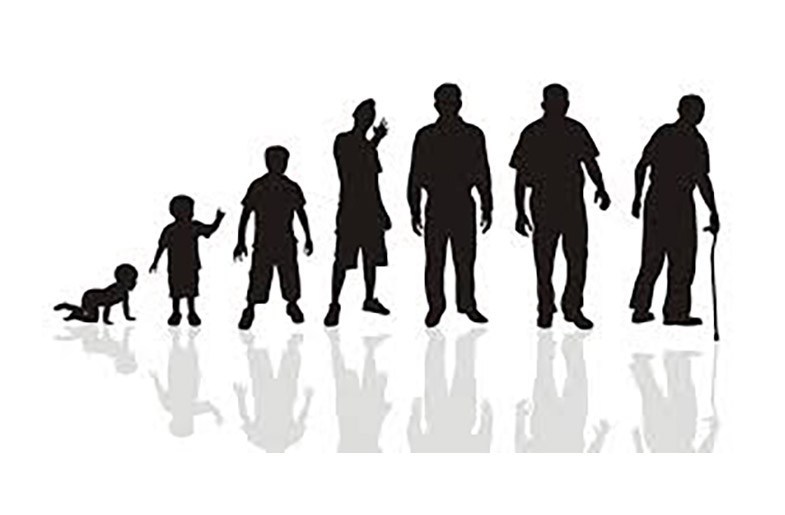Aging is not an event – it’s a continuous process. It can creep up on you, sometimes in a disruptive fashion. However, it is an inexorable process. Have you noticed, however that although we’re all aging, some people feel older or younger than they are? How old do you feel? Would you like to know if there’s a better way to age? To age well?
A recent Washington Post article quotes experts on the difference between our chronological age and our biological age – the measure of our physiological state; our actual wellbeing. Many things we attribute to age “are more related to activity or inactivity as opposed to age,” says Professor Todd Miller of George Washington University, an expert in exercise and nutrition sciences. Such age-related changes are inevitable but “can be mitigated by sleep, exercise, nutrition and stress reduction.” Eyleen O’Rourke, professor of biology and cell biology at the University of Virginia, agrees that lifestyle impacts aging. The ability of our cells to rejuvenate, to respond to damage, is what keeps us ‘young,’ she says. Good genes help, but good habits help more.
What is Healthy Aging? The World Health Organization, says it “is about creating the environments and opportunities that enable people to be and do what they value throughout their lives. Everybody can experience Healthy Aging. Being free of disease or infirmity is not a requirement for Healthy Aging as many older adults have one or more health conditions that, when well controlled, have little influence on their wellbeing.” The goal of healthy aging is to “develop and maintain the functional ability that enables wellbeing in older age.”
When is a good time to contemplate getting older? It’s today. Now. Your best bet to stay healthy, active and in control of your life in later years is to weave this goal of healthy aging into the fabric of your life now; integrate it into your daily routine.
Begin with this promise to yourself: I will try to do all that I must to maintain good physical health and a positive mental attitude. Then tell yourself: I need to do this in order to accomplish all these things that I value (your personal and specific list follows). Identify all the key factors that influence your health and wellbeing, list the actions needed to address them, develop a plan to incorporate these actions into pursuits that you enjoyand make them part of your daily, weekly and monthly routine. Start small. Once you’ve acquired a small habit, add another. Build on your successes. If you enjoy something, you will do it. The Positive Psychology Programtalks of Positive Aging, and refers to it as a way of living rather than a state of being.
It’s really quite simple. You won’t have the same physical capabilities at 50 that you had at 18, or the capabilities you had at 50 when you are 80. Our bodies and minds change as we age, and we have to adjust our lives to accommodate those changes, focusing on three areas: the body, the mind and the spirit. We all know – for the most part – what we need to do. There are innumerable articles, books, and self-help guides on this subject. All the good ones address one or more of the following themes: Eat a well-balanced, nutritious diet. Exercise and otherwise stay physically active. Get regular health checkups. Don’t forget those dental and vision checkups. Do not ignore any health-related warning signs. Secure your financial future. Practice stress-relief and mindfulness techniques. Keep your mind active as well. Stay socially connected with family and friends. Give back to your community. Make a habit of life-long learning.
The key to your success is to apply these guidelines to develop your own individual roadmap; then break that down further into a specific set of actions that you can incorporate into your daily lives. This list of actions should also meet three simple criteria: enjoy what you do, what you eat and drink, and whom you spend your time with.
You’re not just helping yourself in this process; there are other impacts. Dr. Laura Carstensen, psychologist and Founding Director of the Stanford Center on Longevity provides a fascinating perspective on how the pursuit of healthy aging – people embracing the developmental trends that improve with age – benefit not just themselves but also society overall. She discussed her views in a recent interview with AARP’s Doug Shadel. Older people are happier and the last third of their lives can be the best years for themselves and for their contributions to society. “To the extent that the majority of people arrive at old age mentally sharp, physically fit and financially secure, the problems of individual and societal aging fade away, and we can shift to conversations about long life,” she says. We can have a whole different aging society – “one that will ultimately be engaged and contribute to families, communities and workplaces in ways that we never imagined.”
Healthy Aging is not an end goal but a life-long journey. There are abundant resources to help you get started. You will find some of these at Sukham. Join this journey today!
by | Apr 22, 2019
